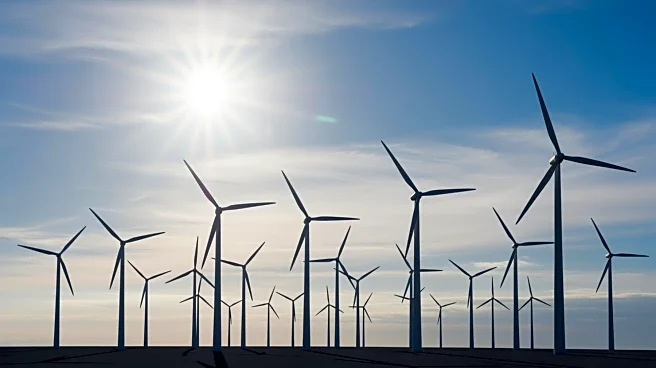What's Happening?
The Trump administration's decision to cancel nearly $8 billion in Energy Department grants for clean energy projects has sparked concerns over rising energy prices. Senator Martin Heinrich of New Mexico criticized the move, stating that it would constrain
energy supply and increase costs for consumers. The canceled projects, which included battery storage and green hydrogen initiatives, were primarily located in states with Democratic governors. The Energy Department has shifted its focus to oil, gas, and coal energy, citing the need to meet baseload demand. This decision comes amid growing electricity demand driven by data centers and AI technologies.
Why It's Important?
The cancellation of clean energy grants by the Trump administration could have significant implications for the U.S. energy landscape. By prioritizing fossil fuels over renewable energy, the administration risks undermining efforts to transition to a sustainable energy future. The decision may lead to higher electricity prices, affecting consumers and potentially slowing down economic growth. Additionally, the move could hinder progress in reducing carbon emissions and meeting climate goals. The energy sector's reliance on fossil fuels may also pose challenges in addressing the increasing demand for electricity from emerging technologies.
What's Next?
The cancellation of clean energy grants is likely to prompt legal challenges and political debates, particularly from states and stakeholders advocating for renewable energy. The decision may also influence upcoming elections, as energy policy becomes a key issue for voters. In response, some companies and financial institutions may increase investments in clean energy to fill the gap left by federal funding cuts. The ongoing discourse around energy policy will shape the future direction of the U.S. energy sector and its ability to meet both economic and environmental objectives.















